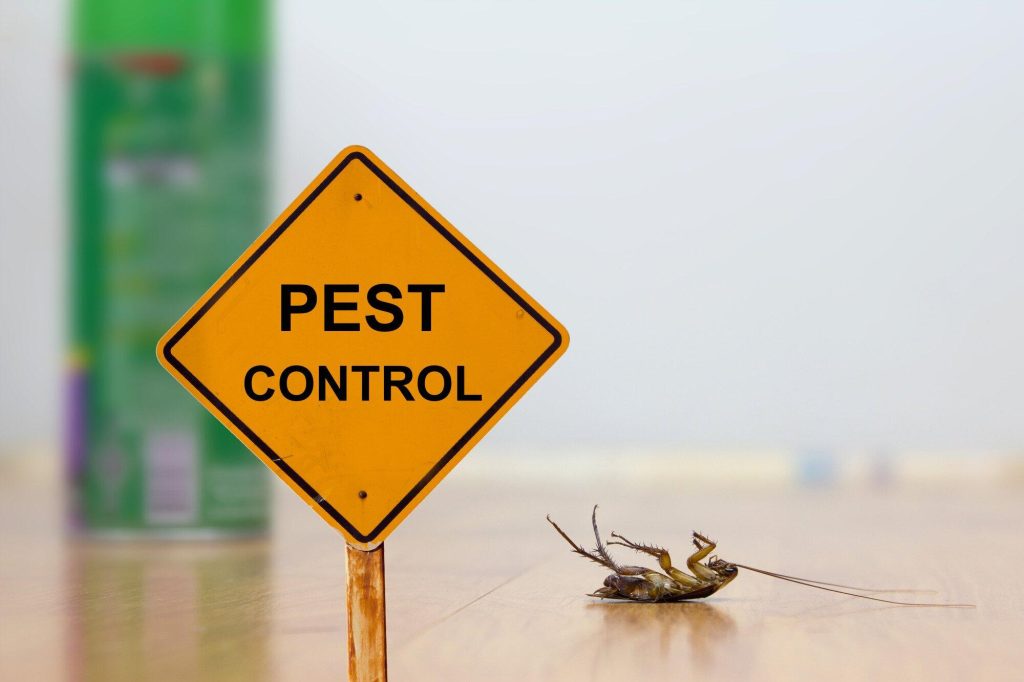A safe outdoor environment is important for every home, park, and community space. People enjoy spending time outside for play, relaxation, and social activities. Families like gathering in backyards, children enjoy running in parks, and pets love open areas. But pests often cause problems in these spaces.
Mosquitoes, ants, rodents, termites, and other pests can make outdoor areas unsafe. They may spread diseases, cause property damage, and reduce comfort. Pest control provides solutions that keep outdoor spaces safe, clean, and enjoyable. Services like All American Pest Control don’t just remove what you see on the surface. They trace where pests are coming from, how they’re entering, and what keeps them around. This thorough approach ensures long-term protection for families, pets, and communities.
In this article, we will explore the many benefits of pest control in maintaining safe outdoor environments.
Protecting Public Health
Public health is one of the main reasons pest control is necessary. Mosquitoes carry illnesses like malaria, dengue, and Zika virus, which affect millions of people every year. Ticks can spread Lyme disease to both humans and animals. Rodents may carry bacteria that cause salmonella or hantavirus, which can be fatal if untreated.
Outdoor areas where people gather-like playgrounds, sports fields, and picnic grounds-become dangerous when pests are present in large numbers. Families may avoid using these spaces if they feel unsafe. Pest control helps reduce these risks by targeting the species that carry diseases. When pests are managed, outdoor spaces remain safe for exercise, play, and family activities.
Reducing Allergies and Skin Reactions
Pests are a common source of allergies and skin irritation. Mosquitoes leave itchy bumps. Fire ants bite and sting, leaving painful red spots that can last for days. Bees and wasps may cause severe swelling, and for some people, stings can trigger life-threatening allergic reactions.
Even non-biting pests can cause allergies. Cockroaches and their droppings can trigger asthma attacks. Mites and fleas may irritate sensitive skin. Pest control reduces these allergens by keeping populations under control. When outdoor spaces are treated, people can enjoy fresh air without constant worry about allergies or skin problems.
Protecting Plants and Gardens
Gardens improve the beauty and function of outdoor areas, but they are highly vulnerable to pests. Insects like beetles, grasshoppers, and aphids feed on leaves and stems. They weaken plants, stunt growth, and reduce harvests. Some pests spread plant viruses or fungi that can kill crops completely.
For families who grow vegetables or fruit trees, this can mean wasted effort and money. For communities, it can reduce green space and local food supply. Pest control prevents these losses by targeting the insects that cause the most damage. Healthy gardens provide shade, oxygen, and food, which all contribute to safe and pleasant outdoor environments.
Safeguarding Pets
Pets spend a lot of time outdoors, which puts them at risk of pest exposure. Fleas cause itching and infections, while ticks may carry diseases that harm dogs and cats. Mosquitoes are especially dangerous for dogs because they spread heartworm disease.
Without pest control, pets bring these pests indoors, spreading infestations to furniture and carpets. This creates extra stress for families and increases the cost of treatment. Regular outdoor pest management protects pets by keeping harmful insects away from their play areas. Healthy pets mean fewer vet visits, lower medical bills, and happier families.
Preventing Property Damage
Pests are responsible for millions of dollars in property damage each year. Termites are a major threat to wooden structures like decks, fences, and pergolas. Carpenter ants hollow out beams and weaken support posts. Rodents chew through wires, causing power outages or even fires.
Even smaller pests, like wasps and bees, can nest in walls or roofs, making outdoor areas unsafe. Pest control prevents these problems by removing pests before they can cause lasting damage. By protecting property, families and businesses save money and maintain safer environments.
Enhancing Outdoor Enjoyment
Outdoor gatherings are often ruined by pests. Families setting up a barbecue may find themselves swatting flies. Children playing outside in the evening often return with mosquito bites. Wasps and bees may scare people away from picnic tables.
These constant disruptions reduce the enjoyment of outdoor life. Pest control changes the experience by minimizing pest activity. Families can enjoy meals without being interrupted. Children can play without fear. Community events like outdoor concerts and fairs also benefit from pest management, as visitors feel more comfortable when pests are under control.
Supporting a Balanced Ecosystem
Every environment depends on balance. While pests are part of nature, they can become destructive when their numbers are too high. For example, unchecked rodent populations reduce bird species, and uncontrolled insect infestations damage native plants.
Pest control helps maintain balance by reducing harmful species while protecting beneficial ones. Bees, butterflies, and earthworms continue to support plant life, while harmful pests are kept in check. This balance allows ecosystems to function properly, ensuring clean air, fertile soil, and healthy wildlife populations.
Preventing the Spread of Invasive Species
Invasive pests are a growing problem worldwide. Species such as fire ants, emerald ash borers, or cane toads take over outdoor environments and push out native wildlife. They often cause long-term damage to trees, soil, and other plants.
Without pest control, invasive species spread rapidly. Once they dominate, it is almost impossible to restore the original environment. Pest management programs identify invasive pests early and stop them from spreading. This protects outdoor spaces and keeps them healthy for future generations.
Reducing Stress and Fear
Outdoor spaces are meant for relaxation, but pests often cause fear and stress. Some people avoid sitting in gardens because of bees or wasps. Others may avoid walking in grassy areas for fear of ticks. Even the sound of buzzing mosquitoes can be enough to disturb rest.
Pest control reduces these worries. Safe environments let families spend evenings outdoors without fear of bites. Children can explore without constant warnings from parents. Removing stress makes outdoor areas truly relaxing and enjoyable.
Increasing Safety in Public Parks
Public parks bring communities together, but they also attract pests. Trash bins provide food for rodents. Standing water in ponds breeds mosquitoes. Ants and wasps invade picnic tables, making them unsafe.
Without pest control, families may avoid these parks. Communities lose valuable spaces for exercise and social events. Pest management ensures that public areas remain clean, safe, and welcoming. This encourages more people to use them, which supports community health and connection.
Protecting Water Sources
Water is essential to every environment, but it is also a favorite breeding ground for pests. Mosquitoes lay eggs in still water. Rodents contaminate outdoor water tanks. Even algae and bacteria grow more quickly when pests are present.
Pest control prevents these problems by keeping water sources clean. Treatments can reduce mosquito breeding and stop rodents from accessing containers. Safe water protects families, pets, and wildlife while improving the overall quality of outdoor environments.
Improving Outdoor Business Spaces
Outdoor businesses must provide safe, clean spaces for customers. Restaurants with patios, resorts with pools, and wedding venues with gardens rely on pest-free environments to attract guests. A single rodent or swarm of mosquitoes can damage a business’s reputation.
Pest control is essential for these spaces. By keeping pests under control, businesses protect their customers and their image. Guests are more likely to return to a venue where they feel comfortable. In this way, pest control also supports the local economy.
Encouraging Outdoor Activities
Pest-free environments encourage people to spend more time outdoors. Families plan picnics, communities hold fairs, and neighbors gather for events. Safe spaces also promote physical activity such as jogging, yoga, or team sports.
The benefits go beyond fun. More outdoor activity improves physical fitness, reduces stress, and strengthens social bonds. Pest control plays an important role by removing the barriers that keep people indoors.
Promoting Long-Term Environmental Health
Responsible pest control does more than remove pests. It also protects the environment in the long run. Many companies use safe treatments that avoid harming soil, plants, or beneficial insects. These methods reduce risks to ecosystems while keeping harmful pests away.
Companies like EnviroGuard Pest promote eco-friendly practices. By using sustainable methods, they protect both people and nature. This ensures that outdoor spaces remain safe and healthy for future generations.
Saving Time and Money
Pest problems are costly when ignored. Medical bills from bites, repairs to damaged structures, and the replacement of destroyed gardens all add up. Businesses may lose customers if pests are not managed.
Preventive pest control is less expensive. By treating small infestations before they spread, families and communities save time and money. Pest control is not just an expense-it is an investment in safety and comfort that pays off in the long term.
ExploreThe Role of Pest Control
Safe outdoor environments are essential for health, happiness, and community life. Pests threaten these spaces by spreading diseases, damaging property, and creating discomfort. Pest control protects families, pets, gardens, parks, and water sources. It encourages outdoor activities, supports ecosystems, and promotes long-term environmental health.
By reducing pests, outdoor spaces become more enjoyable, peaceful, and secure. Families can relax, children can play, and pets can roam safely. Pest control is not just about eliminating pests-it is about creating outdoor areas where both people and nature can thrive.
Looking for more tips and ideas? We’ve got you covered. Check out some of our other posts now.







